 North Korea Increases Aid to Russia, Mos... Tue Nov 19, 2024 12:29 | Marko Marjanovi? North Korea Increases Aid to Russia, Mos... Tue Nov 19, 2024 12:29 | Marko Marjanovi?
 Trump Assembles a War Cabinet Sat Nov 16, 2024 10:29 | Marko Marjanovi? Trump Assembles a War Cabinet Sat Nov 16, 2024 10:29 | Marko Marjanovi?
 Slavgrinder Ramps Up Into Overdrive Tue Nov 12, 2024 10:29 | Marko Marjanovi? Slavgrinder Ramps Up Into Overdrive Tue Nov 12, 2024 10:29 | Marko Marjanovi?
 ?Existential? Culling to Continue on Com... Mon Nov 11, 2024 10:28 | Marko Marjanovi? ?Existential? Culling to Continue on Com... Mon Nov 11, 2024 10:28 | Marko Marjanovi?
 US to Deploy Military Contractors to Ukr... Sun Nov 10, 2024 02:37 | Field Empty US to Deploy Military Contractors to Ukr... Sun Nov 10, 2024 02:37 | Field Empty Anti-Empire >>
A bird's eye view of the vineyard
 Alternative Copy of thesaker.is site is available Thu May 25, 2023 14:38 | Ice-Saker-V6bKu3nz Alternative Copy of thesaker.is site is available Thu May 25, 2023 14:38 | Ice-Saker-V6bKu3nz
Alternative site: https://thesaker.si/saker-a... Site was created using the downloads provided Regards Herb
 The Saker blog is now frozen Tue Feb 28, 2023 23:55 | The Saker The Saker blog is now frozen Tue Feb 28, 2023 23:55 | The Saker
Dear friends As I have previously announced, we are now “freezing” the blog.? We are also making archives of the blog available for free download in various formats (see below).?
 What do you make of the Russia and China Partnership? Tue Feb 28, 2023 16:26 | The Saker What do you make of the Russia and China Partnership? Tue Feb 28, 2023 16:26 | The Saker
by Mr. Allen for the Saker blog Over the last few years, we hear leaders from both Russia and China pronouncing that they have formed a relationship where there are
 Moveable Feast Cafe 2023/02/27 ? Open Thread Mon Feb 27, 2023 19:00 | cafe-uploader Moveable Feast Cafe 2023/02/27 ? Open Thread Mon Feb 27, 2023 19:00 | cafe-uploader
2023/02/27 19:00:02Welcome to the ‘Moveable Feast Cafe’. The ‘Moveable Feast’ is an open thread where readers can post wide ranging observations, articles, rants, off topic and have animate discussions of
 The stage is set for Hybrid World War III Mon Feb 27, 2023 15:50 | The Saker The stage is set for Hybrid World War III Mon Feb 27, 2023 15:50 | The Saker
Pepe Escobar for the Saker blog A powerful feeling rhythms your skin and drums up your soul as you?re immersed in a long walk under persistent snow flurries, pinpointed by The Saker >>
 Does Mass Immigration Cause Homelessness? Thu Jul 03, 2025 15:30 | Noah Carl Does Mass Immigration Cause Homelessness? Thu Jul 03, 2025 15:30 | Noah Carl
Since 2022, the number of homeless people in the US has spiked by almost 200,000. A new paper finds that the influx of asylum seekers under Biden accounts for about 60% of this increase.
The post Does Mass Immigration Cause Homelessness? appeared first on The Daily Sceptic.
 Engineer Given Half Lucy Connolly?s Sentence for Near-Identical Tweet Thu Jul 03, 2025 13:51 | Will Jones Engineer Given Half Lucy Connolly?s Sentence for Near-Identical Tweet Thu Jul 03, 2025 13:51 | Will Jones
A two-tier justice row has erupted after an engineer was jailed for half as long?as Lucy Connolly?over a near-identical tweet, while a Labour MP who punched a constituent to the ground was spared jail completely.
The post Engineer Given Half Lucy Connolly’s Sentence for Near-Identical Tweet appeared first on The Daily Sceptic.
 Poland Stops 98% of Illegal Migrant Crossings with a 116-Mile, 16ft-High Border Wall ? and Now it?s ... Thu Jul 03, 2025 11:35 | Will Jones Poland Stops 98% of Illegal Migrant Crossings with a 116-Mile, 16ft-High Border Wall ? and Now it?s ... Thu Jul 03, 2025 11:35 | Will Jones
Poland cut illegal immigration from Belarus by 98% after building a 116-mile border wall ? and now Donald Tusk's Government is adding a minefield. Turns out robust clampdown on illegal entry is okay if it's from Russia.
The post Poland Stops 98% of Illegal Migrant Crossings with a 116-Mile, 16ft-High Border Wall ? and Now it’s Adding a Minefield appeared first on The Daily Sceptic.
 Manchester Art Gallery?s New Hyper-Woke Exhibition Shows it Has Lost its Way Thu Jul 03, 2025 09:00 | Dr Roger Watson Manchester Art Gallery?s New Hyper-Woke Exhibition Shows it Has Lost its Way Thu Jul 03, 2025 09:00 | Dr Roger Watson
"Entire economies and their resources were forced to serve the polluting industries of the UK," claims Manchester Art Gallery's new hyper-woke exhibition. Prof Roger Watson visits so you don't have to.
The post Manchester Art Gallery’s New Hyper-Woke Exhibition Shows it Has Lost its Way appeared first on The Daily Sceptic.
 The Emergence of the National Dealth Service Thu Jul 03, 2025 07:00 | James Alexander The Emergence of the National Dealth Service Thu Jul 03, 2025 07:00 | James Alexander
In an age in which the Government is threatening to pay more for death-by-medicine than for life-by-medicine, the National Health Service should be renamed the National Dealth Service, says Professor James Alexander.
The post The Emergence of the National Dealth Service appeared first on The Daily Sceptic. Lockdown Skeptics >>
Voltaire, international edition
 Will intergovernmental institutions withstand the end of the "American Empire"?,... Sat Apr 05, 2025 07:15 | en Will intergovernmental institutions withstand the end of the "American Empire"?,... Sat Apr 05, 2025 07:15 | en
 Voltaire, International Newsletter N?127 Sat Apr 05, 2025 06:38 | en Voltaire, International Newsletter N?127 Sat Apr 05, 2025 06:38 | en
 Disintegration of Western democracy begins in France Sat Apr 05, 2025 06:00 | en Disintegration of Western democracy begins in France Sat Apr 05, 2025 06:00 | en
 Voltaire, International Newsletter N?126 Fri Mar 28, 2025 11:39 | en Voltaire, International Newsletter N?126 Fri Mar 28, 2025 11:39 | en
 The International Conference on Combating Anti-Semitism by Amichai Chikli and Na... Fri Mar 28, 2025 11:31 | en The International Conference on Combating Anti-Semitism by Amichai Chikli and Na... Fri Mar 28, 2025 11:31 | en Voltaire Network >>
|
Asylum Apathy Asylum Archive
 national |
racism & migration related issues |
opinion/analysis national |
racism & migration related issues |
opinion/analysis
 Friday June 14, 2013 21:33 Friday June 14, 2013 21:33 by Eamonn Sheehy & Asylum Archive - Asylum Archive & Migrate To The Fringe by Eamonn Sheehy & Asylum Archive - Asylum Archive & Migrate To The Fringe

Ireland, asylum and the institutionalization of the young, old and innocent.
Direct Provision anyone?
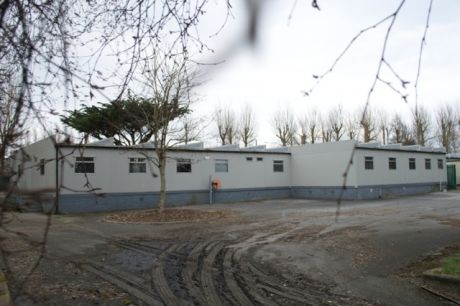 Asylum apathy
Society has always found it difficult to relate to minorities. From lack of knowledge follows distrust and fear. The polarisation of various factions of society across religious, racial and economic divides is rapidly growing.
Into the second anniversary of the Syrian war and a talk is starting in three minutes. The auditorium is full with the gravely concerned, interested in change for the betterment of Syria and its people. But where are the Syrians meant to go in order to escape the flames and the strife? These poor people we see on our TV screens...we hold solidarity with their plight! Speaker speak! Let us know what we can do!!
But outside of the debates and public discourse it’s a different attitude. Solidarity ends for such people as soon as they start seeking refuge. The asylum minority. Apathy begins and debates against are cooked up when faced with the critical and physical human fallout of the disasters we’re so gravely concerned about.
At our borders the victims are processed and catalogued by the Department of Justice. They are then enclosed in ‘direct provision’ centres usually stationed outside of urban areas, isolated locations away from the eyes of the general public. Out of sight out of mind is the solution society has come up with; and all accommodation needs are run at a profit just for good measure. So much for the public debates and discourse.
The victims are given an allowance that won’t lift them over the financial restrictions of local travel or a coffee and a chat in ‘normal’ environments. Marginalised from the start, thus begins the long journey through the hoops of the legal system, an entity more concerned with getting the asylum seeker back on a plane out of Ireland than their immediate wellbeing. ‘You mean there’s holding centres for people like this in Kerry, Cork, Limerick, Sligo...? With families?’
The heaviest baggage the person brings with them is the trauma of conflict and persecution. The psychological fragments are sharp and tear through the mind, sleepless nights and lost empty days. Nervous and physical breakdown sets in along with loneliness and the loss of everything once taken for granted.
And all this time the person is expected to defend themselves in interviews testing their legitimacy...questions on country of origin, routes of escape, torture, persecution, right to return, violence levels...are you legitimate, are you real...the distrust of the welcoming authorities is on par with high comedy.
’What level of violence do they think is safe enough for me to return to!? Why don’t they just leave me alone...leave me sleep...’
Masrour has that constant frown of agitation “I’ve been here 6 years now. I’m 25 years old, nearly 26...” He sits at the canteen table, slumped in he’s chair, with he’s old sports runners edging the table leg. Agitated at the sheer concept of time... waiting...”I’ve got two good shirts, they hang in my room. I have to air them as they smell sometimes with others sharing my room.” He is from Kurdistan. I ask him how things are there. He says it’s a mess, but recent memories are of waiting here in this complex. He doesn’t really want to engage in a conversation on Kurdistan despite my curiosity. I find the concept of spending the ‘best years of our life’s’ stuck in a glorified holding pin to be very daunting.
“You want to play a game of pool? We play it all the time here. There’s nothing else really to do but shoot pool. What a shithole.”
Ahlam is finding it hard to adjust. ‘Those guys just hang around in groups all the time, shouting out loud. My daughter finds it hard to focus. She has to study! I can’t believe they make us live here like this. It is no place for a child.’ Coming from a middle class background in Iraq, Ahlam recounts how her life was relatively good before the invasion took place. ‘We used to go on holidays to Beirut and go to the beach. The people there are so friendly, so welcoming. Our family was happy then.’ Her husband is dead and she has not heard from her son in weeks. Their house in Bagdad is now destroyed through warfare. Memories start stirring emotions...tears well up in her eyes and her voice shakes. “I miss the life we had. We have to go to Beirut again when all this is over, the weather is fantastic...and the fruit...dates are so delicious! Will you come to Beirut with us? When all this is over, it will be great.” Lost in memories, the sadness is palpable; it brings a sick feeling to my stomach.
Asylum archive
Asylum archive is directly concerned with the reality and trauma of life as an asylum seeker.
Asylum archive is based on my personal experience of being an asylum seeker and living in direct provision hostels.
Asylum archive originally started as a coping mechanism while seeking political asylum in Ireland.
Asylum archive uses contemporary art language in the form of social documentaries, videos, photography, found objects, and text.
Asylum archive aims to collaborate with asylum seekers, artists, cultural workers, sociologists, human rights workers, social activists, theorists, immigration lawyers, in the process of creating a platform that deals with questions like exile and asylum, displacement, war traumas, transnational migration, economic migration, immigration policy.
The asylum system functions as a closed and confined space far from the rest of society. It is the other, the outside, and a ghetto.
The direct provision hostels and their residents don’t seem to have physicality.
The rest of society is not to be concerned about their existence.
Asylum archive is taking visual samples of this reality.
Asylum archive has a tendency to reveal different issues including institutional abuse, poverty, social exclusion, racism, mental health issues, etc.
Asylum archive is researching the possibility of creating a site-specific space within one of the closed direct provision hostels.
The idea is that the archive will be available for a permanent rather than a temporary period of time.
The archive will have a vital visual informative and educational perspective.
This is to help to establish better relations and understanding around asylum issues.
In the book ‘Discipline and Punish’ published in 1975, Michael Foucault describes that the disciplinary punishment gives "professionals" (psychologists, programme facilitators, parole officers, etc.) power over the prisoner, most notably in that the prisoner's length of stay depends on the professionals' judgment.
Foucault compares modern society with Jeremy Bentham's "Panopticon" design for prisons where a single guard can watch over many prisoners while the guard remains unseen.
The similarity of the historic suffering of the women in the Magdalene laundries echo’s the incarceration and exclusion that asylum seekers experience in Ireland today.
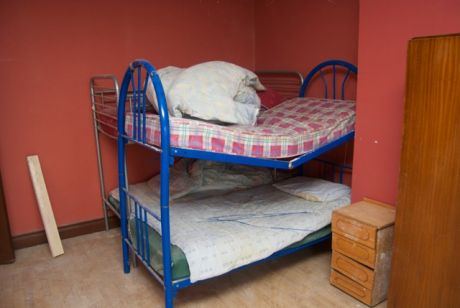
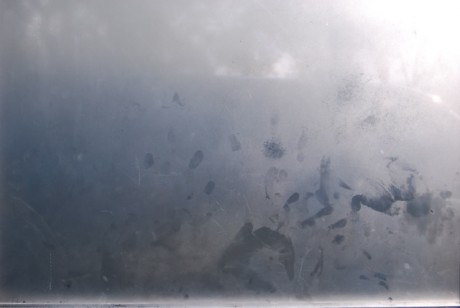
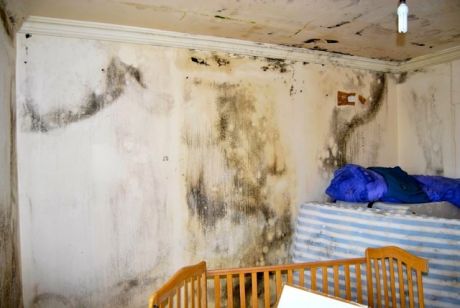
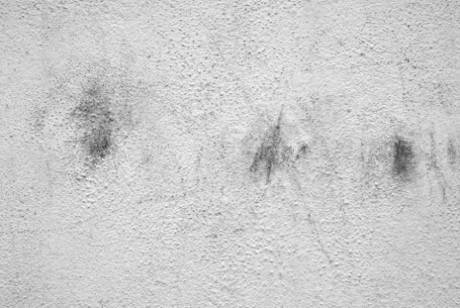
|
 national |
racism & migration related issues |
opinion/analysis
national |
racism & migration related issues |
opinion/analysis
 Friday June 14, 2013 21:33
Friday June 14, 2013 21:33 by Eamonn Sheehy & Asylum Archive - Asylum Archive & Migrate To The Fringe
by Eamonn Sheehy & Asylum Archive - Asylum Archive & Migrate To The Fringe





























 printable version
printable version

 Digg this
Digg this del.icio.us
del.icio.us Furl
Furl Reddit
Reddit Technorati
Technorati Facebook
Facebook Gab
Gab Twitter
Twitter
View Comments Titles Only
save preference
Comments (2 of 2)
Jump To Comment: 2 1Article from the Guardian:
http://www.theguardian.com/world/2014/jun/20/global-ref...eport
If we didn't support these stupid resource wars in the first place, that's how best to support these people.
Instead, we support "going into Syria" "going into Iraq" "going into Libya" "going into afghanistan" and this is inevitably what happens. We (the west) should just stay out of people's countries and stop supporting imperialist invasions for resources / strategic advantage.
Cleaning up afterwards solves little. There will always be another invasion and another. We need to address the cause. i.e. imperialism. Stop swallowing propaganda and stop supporting these needless wars for resources.
We could start by not allowing imperialists to use our airport and voting against any such actions in the UN
But of course our snivelling politicians don't have the balls to do that.
We are broke and a small country. We don't have the money to take on a big number of asylum seekers. Our education system and our health / welfare system are already creaking at the seams, totally underfunded, barely functioning, and close to breaking point. Running them into the ground will only serve the interests of those who want to destroy all social supports. i.e. the very people pushing all these invasions of resource rich countries in the first place. Once they are run into the ground, we'll be of no use to anyone.
We need tobe strategic here and try and keep our weakening social supports alive and part of that process is limiting further immigration into the country until we are stronger.
There are other ways a small country like us can Attack the root cause of refugees needing to leave their war torn countries. i.e. attacking the warmongering that causes it at the root.
Other larger countries are in a better position to absorb more refugees than us.